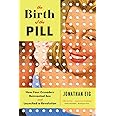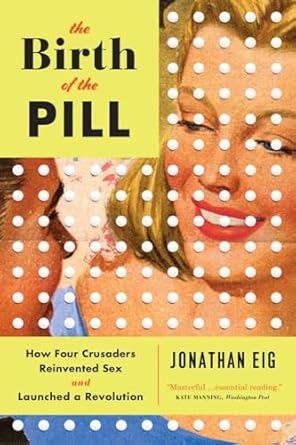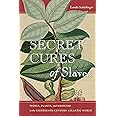
Enjoy fast, free delivery, exclusive deals, and award-winning movies & TV shows with Prime
Try Prime
and start saving today with fast, free delivery
Amazon Prime includes:
Fast, FREE Delivery is available to Prime members. To join, select "Try Amazon Prime and start saving today with Fast, FREE Delivery" below the Add to Cart button.
Amazon Prime members enjoy:- Cardmembers earn 5% Back at Amazon.com with a Prime Credit Card.
- Unlimited Free Two-Day Delivery
- Streaming of thousands of movies and TV shows with limited ads on Prime Video.
- A Kindle book to borrow for free each month - with no due dates
- Listen to over 2 million songs and hundreds of playlists
- Unlimited photo storage with anywhere access
Important: Your credit card will NOT be charged when you start your free trial or if you cancel during the trial period. If you're happy with Amazon Prime, do nothing. At the end of the free trial, your membership will automatically upgrade to a monthly membership.
Buy new:
-20% $15.13$15.13
Ships from: Amazon.com Sold by: Amazon.com
Save with Used - Good
$11.97$11.97
Ships from: Amazon Sold by: ZBK Wholesale





Download the free Kindle app and start reading Kindle books instantly on your smartphone, tablet, or computer - no Kindle device required.
Read instantly on your browser with Kindle for Web.
Using your mobile phone camera - scan the code below and download the Kindle app.

 Audible sample Sample
Audible sample Sample 


The Birth of the Pill: How Four Crusaders Reinvented Sex and Launched a Revolution Paperback – October 19, 2015
Purchase options and add-ons
A Chicago Tribune "Best Books of 2014" • A Slate "Best Books 2014: Staff Picks" • A St. Louis Post-Dispatch "Best Books of 2014"
The fascinating story of one of the most important scientific discoveries of the twentieth century.
We know it simply as "the pill," yet its genesis was anything but simple. Jonathan Eig's masterful narrative revolves around four principal characters: the fiery feminist Margaret Sanger, who was a champion of birth control in her campaign for the rights of women but neglected her own children in pursuit of free love; the beautiful Katharine McCormick, who owed her fortune to her wealthy husband, the son of the founder of International Harvester and a schizophrenic; the visionary scientist Gregory Pincus, who was dismissed by Harvard in the 1930s as a result of his experimentation with in vitro fertilization but who, after he was approached by Sanger and McCormick, grew obsessed with the idea of inventing a drug that could stop ovulation; and the telegenic John Rock, a Catholic doctor from Boston who battled his own church to become an enormously effective advocate in the effort to win public approval for the drug that would be marketed by Searle as Enovid.
Spanning the years from Sanger’s heady Greenwich Village days in the early twentieth century to trial tests in Puerto Rico in the 1950s to the cusp of the sexual revolution in the 1960s, this is a grand story of radical feminist politics, scientific ingenuity, establishment opposition, and, ultimately, a sea change in social attitudes. Brilliantly researched and briskly written, The Birth of the Pill is gripping social, cultural, and scientific history.
8 pages of illustrations- Print length416 pages
- LanguageEnglish
- PublisherW. W. Norton & Company
- Publication dateOctober 19, 2015
- Dimensions5.6 x 1 x 8.3 inches
- ISBN-100393351890
- ISBN-13978-0393351897
Frequently bought together

Similar items that may ship from close to you
Editorial Reviews
Review
― New York Times (Editor’s Choice)
"[Eig] brings a lively, jocular approach to the story, casting an unlikely four-part ensemble comedy starring Sanger; the iconoclastic lead scientist, Gregory Goodwin Pincus; the Roman Catholic physician John Rock; and the supplier of cash behind it all, Katharine McCormick."
― Irin Carmon, New York Times Book Review
"Suspense-filled and beautifully written…an irresistible tale."
― Ken Burns
"A tale of scientific progress and social change as engaging and gripping as any suspense novel."
― Molly Langmuir, Elle
"Fascinating… Weaving medical, corporate, and political history with rich biographical detail, Eig turns the history of the pill into a scientific suspense story full of profoundly human characters. The result is cultural history at its finest."
― Alan W. Petrucelli, Examiner.com
"Jonathan Eig turns the history of the pill into a smart and spicy account of the unlikely bonds that linked a millionaire activist, a free-loving crusader, a Roman Catholic gynecologist, and a maverick scientist. The Birth of the Pill is at once intelligent, well researched, witty, and captivating… [A] unique prism into the changing morals about sex, women, and marriage in 20th century America."
― Randi Hutter Epstein, author of Get Me Out: A History of Childbirth from the Garden of Eden to the Sperm Bank
"A fascinating look into the evolution of medical practices, funding and ethics [and] an intricate portrait of how completely women’s reproductive lives are woven into our culture in disturbing and contradictory ways."
― Ashley Nelson, San Francisco Chronicle
"Masterful… when legislatures and courts threaten to negate the miracles of science and human progress so dazzlingly portrayed here, Eig’s book is essential reading."
― Kate Manning, Washington Post
"Dynamic, highly engrossing… As hard as it is to put down The Birth of the Pill’s story of four privileged individuals’ thrilling quest for better living through science, it’s imperative to remember the scores of women lost to history whose flesh and blood helped make it a reality."
― Anna Holmes, Los Angeles Times
"The pill is utterly ordinary today. The story of how we got here is anything but."
― Hannah Levintova, Mother Jones
"Eig’s research is thorough and his account exhaustive."
― Emily Witt, Bookforum
"Narrative nonfiction at its best… A fascinating and thorough look at one of the most important innovations of the 20th century."
― Bookriot
"Eig’s stylish storytelling makes this a fresh, infectiously readable take."
― Kate Tuttle, Boston Globe
"Who knew that the history of oral contraceptives could rival a good procedural drama, with a scrappy group of believers racing against time?"
― Meredith Counts, Bust
"Absorbing… One of the book’s great strengths―accomplished through his smart choice of lead characters―is the depiction of how arduous it is to make real social change."
― Margaret Talbot, New Yorker
"Aside from being a fascinating look into the evolution of medical practices, funding and ethics, Eig’s book is an intricate portrait of how completely women’s lives are weaved into our culture in disturbing and contradictory ways."
― San Francisco Chronicle
"An impassioned cultural history."
― Laura Pearson, Chicago Tribune
"Detailed, compelling history… Eig does a remarkable job of keeping the science and the storytelling in harmony."
― Josh Modell, The Onion A.V. Club
About the Author
Product details
- Publisher : W. W. Norton & Company; Reprint edition (October 19, 2015)
- Language : English
- Paperback : 416 pages
- ISBN-10 : 0393351890
- ISBN-13 : 978-0393351897
- Item Weight : 12 ounces
- Dimensions : 5.6 x 1 x 8.3 inches
- Best Sellers Rank: #697,965 in Books (See Top 100 in Books)
- #129 in Abortion & Birth Control
- #708 in History of Medicine (Books)
- #2,313 in History & Philosophy of Science (Books)
- Customer Reviews:
About the author

Jonathan Eig is the author of six books, including four New York Times best sellers. His most recent book is King: A Life, which the Times called a "the definitive biography" of Martin Luther King Jr. and a book "worthy of its subject." Prior to that, Eig wrote "Ali: A Life," which has been hailed as one of the best sports biographies of all time. Ali: A Life, won a 2018 PEN America Literary Award and was a finalist for the Mark Lynton History Prize. Eig served as a senior consulting producer for the PBS series Muhammad Ali. His first book, Luckiest Man: The Life and Death of Lou Gehrig, won the Casey Award. His books have been listed among the best of the year by The New York Times, The Washington Post, and the Wall Street Journal. He lives in Chicago with his wife and children.
Customer reviews
Customer Reviews, including Product Star Ratings help customers to learn more about the product and decide whether it is the right product for them.
To calculate the overall star rating and percentage breakdown by star, we don’t use a simple average. Instead, our system considers things like how recent a review is and if the reviewer bought the item on Amazon. It also analyzed reviews to verify trustworthiness.
Learn more how customers reviews work on Amazon-
Top reviews
Top reviews from the United States
There was a problem filtering reviews right now. Please try again later.
At the time the contraceptive pill was being developed, human reproduction was still very poorly understood. Prudish attitudes and obscenity laws hampered scientific research, discouraged and in many cases prevented doctors from educating their patients, and kept women from having any significant degree of control over their own bodies or the decision to become pregnant. It took a few independent-minded, morally driven people of unusual character to achieve change in the arena of reproductive rights.
Two of these four had spent years caring for people whose unchecked fertility threatened their own life and health, and the well-being of their families. Women, especially poor women, found themselves pregnant again and again before their bodies had recovered from earlier pregnancies, had medical conditions caused or exacerbated by pregnancy and childbirth, or could not afford adequate food, clothing, shelter, and health care for their rapidly growing families. Many women also found too many pregnancies burdensome, as they were prevented from pursuing an education or a career, or suffered from exhaustion, depression, and feelings of hopelessness as they found themselves caring for more children than they could cope with.
Margaret Sanger and Dr. John Rock encountered all of these problems up close and personal; their birth control activism was the direct result of their experiences as reproductive health care providers. Sanger worked for many years as a nurse caring for the poorest people in the slums and tenements of New York City. She was so moved by the plight of these women that she risked fines and imprisonment to open the first 'birth control' clinic (as she coined the term). Countless poor women, who had often already fled starvation, poverty, and disease in their home countries, found themselves unable to escape the cycle of repeated pregnancies and deepening poverty as their own bodies weakened and their meager resources were stretched ever thinner in the face of anti-immigrant bias, pittance wages, and filthy, overcrowded, and dangerous living and working conditions. This was also an era when women had no right of refusal of sex to their husbands. They faced the awful choice of risking another pregnancy, injury or death by self-performed abortion, or being abandoned when few jobs were available to women, and few jobs paid women enough to live on themselves, let alone support a family. And charity organizations, try as they might, could not keep up with even a fraction of the demand for assistance. Despite repeated arrests and fines, Sanger continued to provide birth control devices and information to the who women flocked to her clinic, pouring out their life stories in person and in letters like this one (original spelling):
'... I am thirty years old have been married 14 years and have 11 children... I have kidney and heart disease, and every one of my children is defictived and we are very poor. Now Miss Sanger can you please help me... I am so worred and and I have cryed my self sick ...I know I will go like my poor sister she went insane and died. ...the doctor won't do anything for me ... if I could tell you all the terrible things that I have been through with my babys and children you would know why I would rather die than have another one. Please no one will ever know and I will be so happy and I will do anything in this world for you and your good work ...Doctors are men and have not had a baby so they have no pitty for a poor sick Mother. You are a Mother and you know so please pitty me and help me. Please Please.'
(My heart ached and my eyes tingled as I read this letter; I can only imagine what Sanger felt, since she met and struggled to help these women every day.)
Dr. John Rock was an obstetrician and fertility specialist. While one of his main focuses was on helping women with fertility problems become pregnant, he also worked with many other women for whom pregnancy, childbirth, and child care was detrimental to their physical and mental health, for various reasons. He became a staunch activist for birth control, and worked to convince the public and the Catholic church, of which he was a committed member, that effectively planning families and regulating childbirth is not only practical, but of the highest moral worth, since it promotes bodily and spiritual health, and a loving family life in which all children can be well cared for. He thought he could convince the church hierarchy that the hormonal method of birth control is consistent with Catholic teaching, since it's simply an extension of the natural cycle that occurs in a woman's body, rather than a barrier method with was doctrinally forbidden; his rhythm-method clinic taught the only form of birth control other than abstinence that was sanctioned by his religion, but as he observed, neither worked very well. His efforts to help women control their rates of pregnancy would eventually prove effective, but his efforts to convince the Church, until this day, have been in vain.
Yet birth control was not only linked to beliefs in reproductive rights and health: it was linked to a change in sexual mores. Sanger, Pincus, Rock, and McCormick all held what we'd now call 'sex-positive' beliefs: they thought sex could and should be a wonderful thing, among the most joyous, intimate, and healthy means by which humans connect with one another. In a time when sex was often regarded as shameful, depraved, and for the sake of men (I would argue that while it's re-branded, it still is, as 'liberated', 'powerful' women painfully squeeze themselves into bustiers and stilettos and straighten, curl, bleach, and cut their hair and bodies to fit into a few stereotypical male fantasy body types as possible, in our crudely sex-obsessed, tabloid, misogynistic culture -- yes, I'm talking about you too, Beyonce), they thought it could and should be a loving, freeing, and transcendent experience for both partners.
Dr. Gregory Pincus, the scientist who would ultimately formulate the first effective, FDA-approved birth control pill, was an unusually independent-minded, freethinking, colorful personality from an early age. As a young researcher at Harvard, he was widely publicized for his frank and unapologetic views on the benefits of revolutionizing human reproduction through scientific intervention. The sensationalist, brave-new-world 'news' stories led to Harvard's kicking him out of their faculty and their labs, as a reputation-defense measure. Pincus went on to found his own research institute,. where he continued his research into hormones and their effects in reproduction. Arguably, it was this very political and financial independence from any large mainstream establishment that enabled him to succeed in his goal to produce the first birth control pill.
It also took money, and lots of it, as it does with any new pharmaceutical. Planned Parenthood could only provide limited funding for Pincus's work, so it dragged on slowly, until Katherine McCormick, wealthy heiress, came along. She had discovered, shortly after she married, that her new husband suffered from severe mental illness. McCormick was well-educated, an MIT graduate at the time of her marriage, and was fascinated by all things science. When she learned of her husband's mental illness, she poured time, money, and research into finding a cure, especially in the fields of hormonal research and heritability. She was also dedicated to women's rights causes, and by the time of her husband's death, her interests and fields of study and activism led to her single-minded determination to aid in the cause of making birth control effective and widely accessible. It was she, more than any other, who provided Pincus the funds to pursue more lab research, and for he and Rock to conduct more clinical trials.
Eig's book is not a simple hero story: he reveals the history and personalities of each with their complex set of motivations, warts and all. Sanger was a eugenicist, for example. It was not uncommon for progressives, scientists, and those in the medical field to subscribe to the principles of eugenics at that time; many thought (mistakenly, as it turned out) that it was the only way science could really 'cure' disability and disease once and for all. Medical science, humanitarian groups, and governments had not yet offered systematic or effective solutions to the dangers of pregnancy and childbirth, diseases caused by overcrowding and malnourishment, and mental health issues, and were simply unable to keep up with the demands of the humanitarian crisis in affected communities. Eugenics, on the other had, seemed to offer the only sure and straightforward solution, until the application of its principles by fascist governments revealed how faulty a 'science' (really a pseudoscience) it was. Sanger was also a neglectful mother, unsuited by personality to the stay-at-home role mothers were restricted to in her time. Pincus was a media hound, and conducted some of his trials in what today would be considered an unethical manner. Rock was willing to mislead some of his patients when he found that public attitudes made most women unwilling to participate in contraceptive studies, if presented as such. And McCormick, like Sanger, had a marked tendency to elitism.
Yet the contributions of these four unusual, passionate, driven crusaders towards improving women's health and social and legal emancipation can hardly be stressed enough. Women can generally have as many children as they choose, when they choose, and are (largely) not subject to the whims of men when it comes reproductive issues (still mostly true despite discouraging recent regrettable, retrograde legal decisions, for example, regarding the mandate that insurance companies pay for full reproductive health care). Sanger's, Pincus's, Rock's, and McCormick's belief that birth control would ultimately improve and save the lives of women, and improve the standard of living for families, have been vindicated over the years. For example, women on the pill live longer, on average, than other women, and the results of decades of study leads the World Health Organization to promote birth control as an important means of improving health and relieving poverty around the world.
Eig does the public a great service when he tells the story, so compellingly, of how the pill came to be, since all of the reasons that accessible, effective birth control was important then are the same reasons it's important today.
What I find remarkable is how far we have come in the last 75 years. It is hard to imagine that prior to 1950s we did not understand how the hypothalamus and pituitary control reproduction. We have to thank Sir Geoffrey Harris for his groundbreaking observations that made it possible for these 3 protagonists to dream that estrogen/progesterone might suppress ovulation, preventing conception.
What is even more remarkable is the acceptance of a safe and effective form of contraception. I was a high school and college student during this period - it was remarkable how quickly the "pill" changed many things.
Found this book remarkable and enjoyable.













